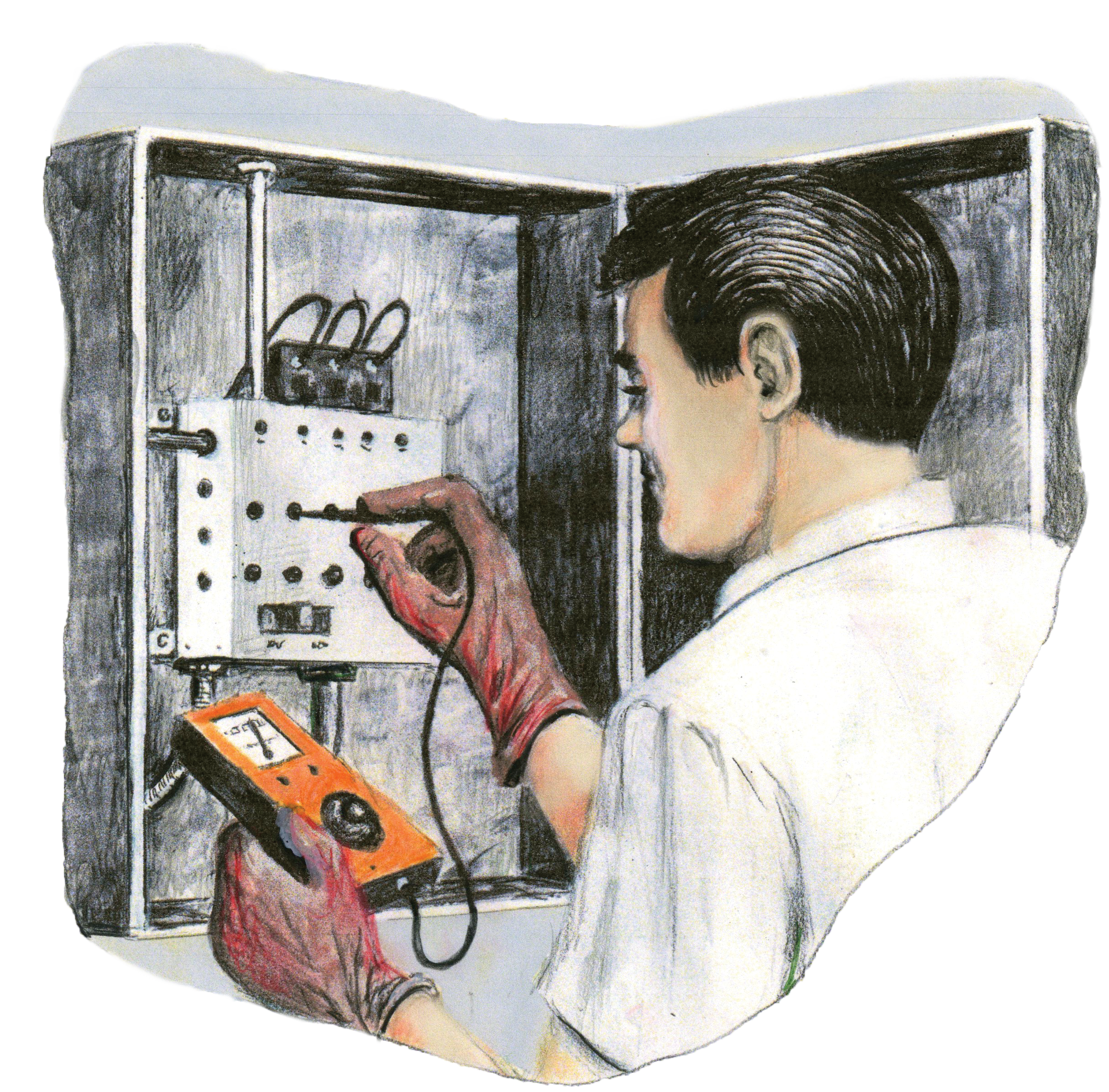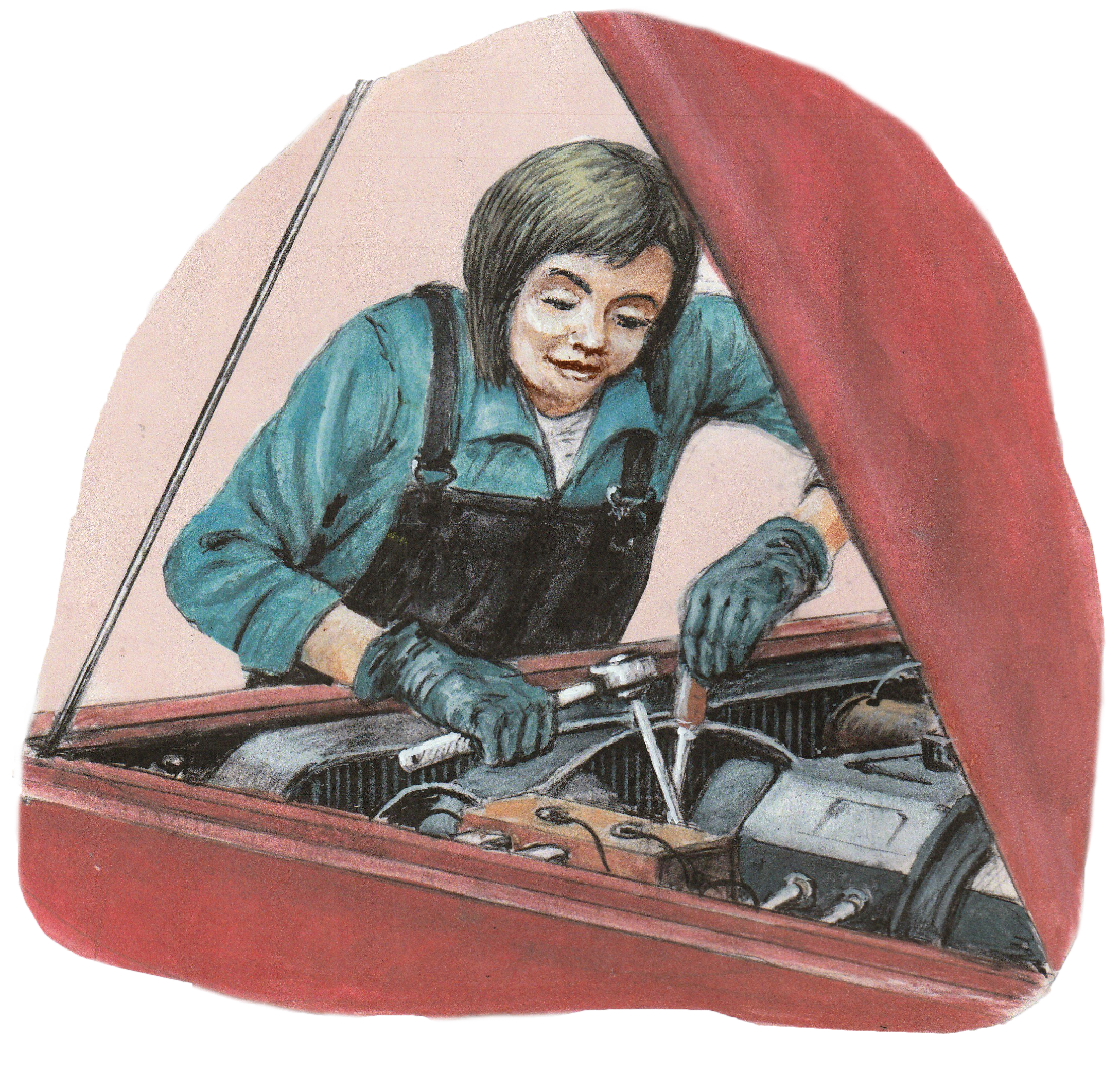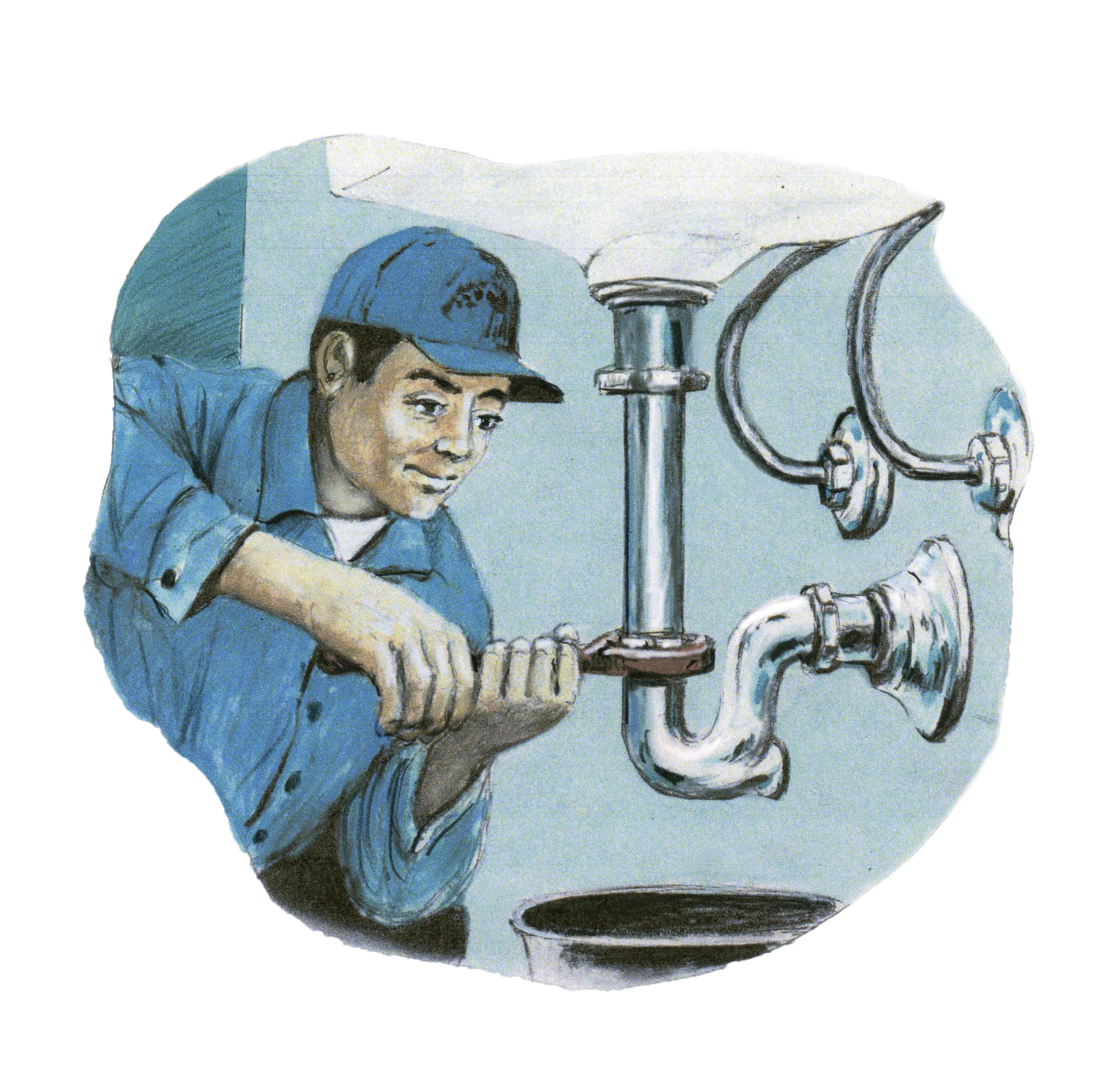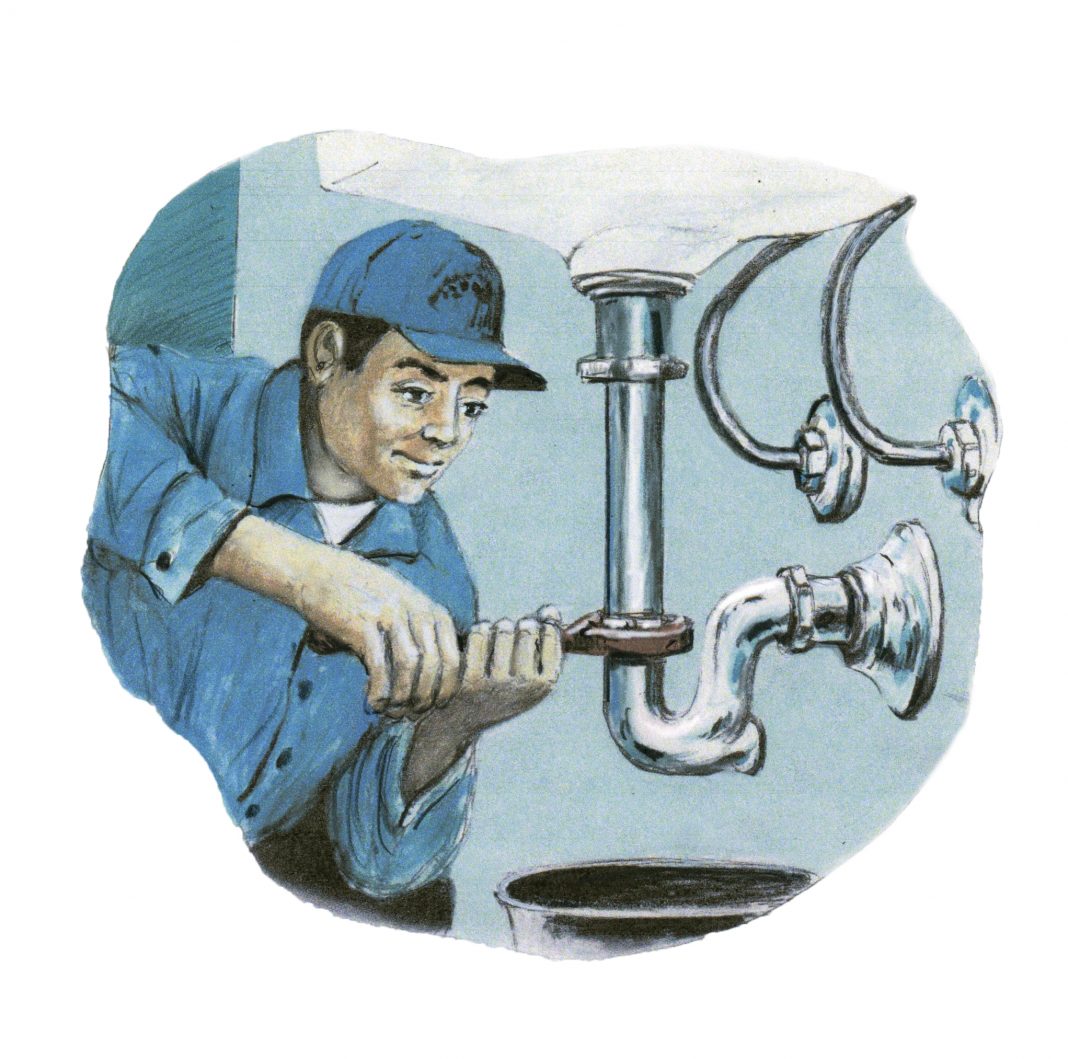By Patrice Lewis
When I was in my late teens and getting ready to attend college, my father gave me a piece of advice: “Study whatever you want, but always make sure you have a skill you can fall back on.”
His advice was dead-on. When I graduated with a degree in zoology (in 1985), I couldn’t find a job in my field, so for many years I fell back on my skill in typing (i.e. administrative/secretarial work). As it turned out, that skill meshed with several other skills I either already possessed or later acquired: writing, editing, desktop publishing. Later I got a master’s degree and worked for a few years in my chosen career (field biology), but ultimately it was typing — and writing and editing and desktop publishing — that provided many more income-earning opportunities than zoology ever did.
My husband followed a similar path. Even though he had a master’s degree in engineering geology, it is his skill in woodworking that has supported our family for the past 26 years. Recently, after I posted one of his projects (a new kitchen countertop) on my blog, a reader wrote: “Beautiful work. Love the work of a fine craftsman. Anyone that talented will never be without work.”
He’s right!
In a commentary written by Dave Duffy in the Oct/Nov/Dec 2019 issue of Backwoods Home Magazine, he suggested the radical notion of meshing skill with passion. “A fundamental problem for many young people entering the work force is figuring out not only how to make a living but how to enjoy the job at the same time,” he wrote. “Learn how to do one skill you enjoy so well that others will seek you out for your expertise. After that you’ll never work a day in your life.”

When our daughters hit their late teens, we knew we couldn’t afford to send them to college, and urged them not to start their adult lives mired in student loan debt. Instead we encouraged an alternate path: to explore the trades. Having watched their parents earn a living through maverick means, our girls were very open to this idea.
Our oldest daughter went to a nanny school where she emerged a certified professional, able to command astounding wages for her skill and patience with children. Our youngest daughter joined the Navy and became an electronics technician, with plans to become a journeyman electrician before she finishes her enlistment. Both girls are highly satisfied with their career choices. They have no debt, have impressive bank balances, and have many experiences under their belts they might have missed if they’d been immured for four years in a university environment.
The sum of all this alternative thinking is as follows: Consider the trades instead of college.
What’s wrong with college?
If I seem unnecessarily hostile to college, despite possessing an advanced degree, you’re right. Why? What’s my problem with college?
There are many things I have issues with, but I’ll restrict myself to addressing just two: Cost and subjects of study.
First, consider the cost. College students and recent graduates are in crisis mode. Since the late 1980s, college tuition has increased at a rate four times that of inflation and eight times that of household income. College is no longer affordable for most middle-class families unless they borrow money. Some young people graduate with over $150,000 of debt — debt, moreover, that can never be discharged in bankruptcy. This can have crushing life-long repercussions. A recent headline summed it up: “Most Americans think young adults should be financially independent by age 22 — but only 24 percent are.”
Second, consider the major subjects being studied. Quite simply, the vast majority of college students (and their advisors) ignore a very basic economic principle when it comes to what degree program to major in: supply and demand. Before you spend four years and a financial fortune obtaining a degree, make sure there is a suitable market for that degree in the first place. Students are pressured to go to college to “improve” their employability, but this is hampered by studying subjects that have little marketable demand.
Those degrees in high demand (generally the STEM areas: science, technology, engineering, medicine) mean graduates are likely (though not always) able to land a job in their field within a short time after graduation, after which they can tackle their student loan debt in a timely and aggressive manner. Conversely, those degrees in low demand (usually liberal arts degrees such as English, history, theater, psychology, gender studies, etc.) are likely to find themselves employed at Starbucks. They’ll have similar levels of debt as a petroleum engineering graduate, but will be nowhere near as able to address that debt in any meaningful way. This has resulted in the sad stereotype of the Millennial living in his parent’s basement, unable to transition to adulthood and hit the normal milestones of life (marriage, home ownership, children) because he cannot break the crippling shackles of debt.
This simple concept — supply and demand — must be examined with a critical and unemotional eye before attending college. Otherwise, as millions of graduates have tragically learned, their choices in college will affect them for decades to come. Some young people have even chosen to exile themselves abroad, fleeing their student-loan balance and working in foreign counties, rather than face a lifetime of crippling debt. One man who worked first in China and then in Ukraine said, “I was expected to make a $400 loan payment every month, but I had no money, no sustainable income. College ruined my life.”
Warning: Propaganda ahead
My husband and I were criticized — heavily — for our decision to discourage our girls from attending college. They’ll never reach their full potential, we were told. They’ll be wasting their lives, we were told. They won’t earn as much as if they had a college degree, we were told. The dire predictions went on and on.
Yet both our daughters, currently aged 21 and 23, have enormous savings accounts and valuable trade skills. At the same age, most of their college-educated peers with degrees in the liberal arts are in the reverse situation: enormous student-loan debt and no marketable skills.

The “need” for a college degree in something — anything — is a masterful example of social engineering and propaganda. Young people are told a college degree will translate into higher lifetime earnings. They use all kinds of supposed facts and figures to back up these claims.
But if this is true, why are so many young people experiencing the opposite? Rather than settling into well-paying careers, paying back their student loans, getting married, buying a home, and having children, millions are living with their parents, avoiding marriage because they are too deeply in debt, and working at multiple part-time jobs outside their fields of study. They’ve learned the hard way there’s no demand for their degrees.
Leggo the ego
One of the unspoken but highly influential issues around the issue of a college education is the matter of ego. Parents love to say with pride, “My son or daughter is attending Name of College.”
I like to think this philosophy hearkens back to the early 1900s, when millions of immigrants arrived in America, many of them poor and illiterate. To send their children to college was the pinnacle of the American dream. College degrees were comparatively uncommon and therefore worth a great deal.
But two things changed. One, college degrees are now a dime-a-dozen. Two-thirds of high school graduates now attend college. There’s nothing special in a degree anymore. And two, the relative worth of a degree is no longer high. Those degrees which are still worthwhile are in the STEM subjects, which comparatively few people acquire. The other degrees (usually the liberal arts) are often dumbed-down caricatures of what they were 50 or 75 years ago. Additionally, a college degree is padded. Most subjects could be mastered in two years, but college takes four years. Why? Because they require you to be “well rounded” by forcing you to take courses unrelated to your chosen major.
But that ego thing is hard to give up, and it’s why so many young people attend college — regardless of whether there are jobs in their areas of study. This, literally, can be a life-altering mistake, particularly if student loans are involved.
So is college worth it … or not?
Look at the numbers
To help answer this question, it’s worth examining the earning potential of tradesmen versus college graduates.
According to the Bureau of Labor Statistics, the average yearly income for those with a high school diploma (but no additional training in the skilled trades) is about $38,000. Those with a bachelor degree earn about $62,000 (this figure includes ALL degrees, both STEM and liberal arts). On average, those with a doctorate degree earn about $95,000.
While these sounds like impressive reasons to at least get a bachelor’s degree, the real killer for college graduates is student loan debt. The young person who can graduate debt-free is a lucky person indeed.
Currently one in four Americans — a quarter of our nation — has student loan debt. Seventy percent of college students graduate with debt. The average amount for a bachelor’s degree is $37,172, and the average monthly payment is $393/month. It takes anywhere from 10 to 30 years to pay this off.
Those with advanced degrees owe much more. The average graduate student owes $57,600. Ph.D. graduates outside the field of education owe an average $98,800 in student loans.
This should convince you to study only STEM subjects in college, right? Not so fast. Even the hallowed field of medicine may be economically questionable.
The class of 2018 medical school students graduated with an average of $196,520 in student loans. With a $197,000 student loan balance, young doctors owe $2,212 a month on a standard 10-year federal repayment plan, assuming a 6.25% average interest rate.
The average pharmacy school debt is $163,494, and the average dental school debt is a whopping $287,331. Holy cow!
Now here’s the thing: Most newly minted doctors start practicing in their late 20s or early 30s, by which time skilled tradesmen have been in the work force for a decade or more.
Doctor vs. plumber
So how do the finances compare between, say, a doctor and a plumber? This is where things get interesting.
A website called WealthMeta crunched the numbers. Starting at age 18, when the path of future doctors and future plumbers start to diverge, the website ran the numbers through a simulator for the entire working careers (through the age of 65). For the sake of comparison, the simulator assumed the doctor and the plumber have identical living expenses (more on that later) so the comparison could focus solely on differences in income and debt. For this illustration, both the doctor and plumber were given a monthly budget of $1500, which increased with inflation.
The simulator assumed the plumber learned his trade by apprenticeship (as opposed to attending trade school) and takes on no student-loan debt through this avenue. Nationwide, the median pay for apprentice plumbers is about $28,000. After getting licensed and becoming a journeyman, pay increases to about $51,000 per year. After 10 years’ experience, the tradesman achieves the status of master plumber with an average income of nearly $60,000. The simulator projects a net worth of $4 million by retirement age.

In contrast, doctors must first get an undergraduate degree (four years, about $37,000 in student loans), then medical school (four years, loan debt now $183,000), then residency (three years). Medical residents earn about $53,000/year (a bit more than a journeyman plumber). After 11 years of training, doctors can begin practicing and can expect to make an average of $176,000. But they still have to pay back their student loan debt, and they get a later start on their retirement than the plumber. However the doctor’s ending net worth at retirement is about $9.5 million.
“See?” you might say. “A doctor is worth more than a plumber at retirement!”
You’re right. But the $4 million a plumber is worth at retirement is nothing to sneeze at. And, since the plumber in this simulation was never mired in debt, he can afford perks earlier in life (shorter work weeks, longer vacations, paying off his mortgage) that the doctor can’t do until later.
You might dismiss these simulators as unrealistic, but we’ve seen both sides in action. Years ago, we knew a mechanic who was precisely my husband’s age (42 at the time). He owned a garage and employed three other mechanics. His wife ran the office. Already he was only working four days a week, owned his home outright, and had more business than he could handle.
More recently we became good friends with a local small-town doctor and his family. At the age of 50, this physician was nearly finished paying off his student loans. When we told him about our mechanic friend, he nodded knowingly and confirmed that doctors are not financially as well off as people like to think.
Earlier I mentioned that for the sake of comparison, the simulator assumed the doctor and the plumber have identical living expenses. But this is not true, especially after doctors start practicing. Most plumbers don’t feel the social pressure to purchase expensive homes, cars, or other status symbols of success. Many doctors do, which reduces their disposable income even more and allows plumbers to “catch up” even further in the earnings game.
What about non-STEM areas of study? How much do liberal arts graduates make? Online research is a little vague in this area because no one wants to challenge the assertion that liberal arts graduates are just as employable as STEM graduates. Article after article with perky titles such as “Liberal Arts Majors Can Get High-Paying Jobs Too!” assure frightened graduates that yes, their Theater Arts degree is “valuable,” particularly if they’re willing to work in a different field.
And in fact, liberal arts graduates are not likely to have much trouble finding jobs. But the issue is whether those jobs required a college degree in the first place — hence the cynical stereotype of the highly educated but debt-laden barista. Bottom-rung liberal arts graduates often start around $50,000/year, out of which they must afford their student-loan payments as well as normal living expenses. In other words, most liberal arts graduates are “underemployed” — working at jobs unrelated to their field of study and often which didn’t require a degree to begin with.
Unable to land a job in their chosen field, many liberal arts majors desperately attempt to make themselves more marketable by going to graduate school for a master’s or doctorate degree. This may or may not make them more marketable, but it inevitably multiplies their student loan debt. At best they land a job and can start paying down their debt. At worst, they graduate with multiple degrees, extreme debt, no job, and an outsized load of bitterness. And they still have to hire a mechanic whenever their car breaks down because they don’t have the slightest idea how to fix their own vehicle.
Meanwhile the guy who started as a lowly mechanic now owns his own garage, employees three other people, takes Fridays off to go fishing, and is set to retire in five years.
Here’s the financial skinny: If you study an in-demand STEM degree program, your lifetime earnings will likely outpace that of a skilled tradesman after a lag time period of catching up. But if you obtain a liberal arts degree in something with far more supply than demand — especially if you graduate with any sort of debt — then the skilled tradesman usually has you financially beat by a long shot.
Consider the trades
Because of the irrational insistence in recent years that everyone must have a college degree, there is a severe shortage of skilled tradesmen. As a result, those who concentrate their talents in traditional blue-collar areas can command high wages.
In 2018, NPR ran an article profiling a young man named Garrett Morgan who was pressured to attend college after high school. “All through my life it was, ‘If you don’t go to college you’re going to end up on the streets,’” Morgan said. “Everybody’s so gung-ho about going to college.”
Morgan tried college and didn’t like it. Risking the threat of being “on the streets,” he started training as an ironworker. “Seattle is a forest of construction cranes,” noted NPR, “and employers are clamoring for skilled ironworkers. Morgan, who is 20, is already working on a job site when he isn’t at the Pacific Northwest Ironworkers shop. He gets benefits, including a pension, from employers at the job sites where he is training. And he is earning $28.36 an hour, or more than $50,000 a year, which is almost certain to steadily increase. As for his friends from high school, ‘they’re still in college,’ he said with a wry grin. ‘Someday maybe they’ll make as much as me.’”
Morgan’s story is by no means unusual, and it reinforces the financial simulator mentioned above: Skilled tradesmen have a jump-start in earning potential at a much younger age. Doctors and other highly skilled professionals take a long time to catch up, and those with liberal arts degrees — even advanced ones — often never catch up, especially if they’re mired in debt.
Even modest tradesmen can earn high wages. Right out of nanny school, our older daughter earned well over $35,000 per year as a live-in nanny (her pay has since increased). Read that again: live-in. That means most of her expenses are covered, and she is able to bank an enormous chunk of her income. The same applies to our Navy daughter: because her living expenses are covered, she is able to bank the vast majority of her paychecks.
I won’t detail how much our daughters have in their savings accounts, but they dwarf what most people have in their early 20s — especially when compared to those shackled by student-loan debt. Since they’re just at the beginning of their working lives — and since they were taught by their frugal parents to avoid debt of any sort — our girls can look forward to financial security. They love what they do, and their skills will never become obsolete.
Exceptions to every rule
Of necessity this article generalizes the situation. Many people who majored in English, history, Gender Studies, theater, psychology, and other liberal arts graduated debt-free and are able to find well-paying jobs because they possessed a degree, any degree. Congratulations, I’m so happy for you. But not everyone is as fortunate.
There’s another side to the “everyone-must-go-to-college” mantra, and that’s how often practical skills are lost. Today’s Millennials are famously derided as absurdly incompetent in everyday skills, hence the proliferation of “adulting” classes where newbie young adults can learn such basics as cooking from scratch, changing a flat tire, hammering a nail, and other fundamentals people used to learn at their parents’ knees. (Ironically, this criticism is unlikely to apply to readers of this magazine because we’re a bunch of stubborn, practical, do-it-yourself cusses.)
This contrast means those entering the trades are often seen as staggeringly capable and called upon to handle many fix-it scenarios. (True story: Our Navy daughter has a brisk sideline business sewing patches on uniforms, a constant need in the military. One customer told her half-jokingly, “You’re so competent it’s disgusting.”) It’s why plumbers, mechanics, construction workers, handymen, electricians, seamstresses, and nannies are in constant and high demand.
In today’s highly charged atmosphere (“You must go to college or you’re a failure in life!”), we’ve forgotten how young people educated themselves for thousands of years. Whether you learned the art of the wheelwright or became a cobbler, your task was to become a valuable and contributing member of society, providing goods and services needed by others.
Most college degrees these days can’t make a claim that they train people into necessary professions. And that, more than anything else, should make you pause before plucking down $100,000 on a degree.
I believe everyone should partake of higher education to qualify them for a productive adulthood in which they can make a living and support a family. But “higher education” can include training, apprenticeships, trade school, or the old-fashioned working your way up the ladder from humble beginnings. Too many people graduate with elegant degrees but can’t plumb, wire, build, sew, cook, weld, butcher, repair, saw, or tinker their way out of a paper bag and must hire well-paid experts to do these tasks for them.
Additionally, many young people lack the intangible but valuable skills all employers seek: a high work ethic, dedication, the ability to arrive on time, to perform a task without complaint and (after training) without supervision, the ability to speak clearly without saying “like” or an expletive every fourth word, and other indefinable skills that would raise them head and shoulders above the crowd.
My whole point is this: before attending college simply because it’s expected, look ahead at the job market and see if people are clamoring to hire those with degrees in your area of study. If the answer is “yes,” then by all means go to college. If not, consider the trades.
The nice thing about college is it’s always there. Nothing says you must attend college at 18. You can attend anytime. That door never shuts. But a heavy debt load at the tender age of 22 can shut doors — lots of them.
Dave Duffy confirmed this in his editorial, lamenting how many young people follow the bad advice of “Go to college and get a general education because an educated person will always be able to find a good job.” He clarifies: “[G]oing to college and not getting a specific skill, such as becoming a doctor, engineer, accountant or other discipline for which there are ample, enjoyable, and well-paid working opportunities, is a mistake. … So this is my advice in a nutshell. Make your final goal to hang your own shingle with a skill for which people will pay. You’ll become the main beneficiary of your skill and you’ll be wholly responsible for success or failure. With a good work ethic you’ll enjoy the rest of your working days and won’t work a day again for the rest of your life.”
I’ll end by modifying the advice my father gave me: Never stop learning about or polishing your passions. You never know how useful they might be — and how much they’ll ultimately allow you to make a living doing what you love.















This is a very insightful article. I hold several advanced Engineering degrees, which have given me a good living but I can only be employed by high technology companies. I am therefore dependent on them. Having a trade provides independence. Yes I can practice engineering on my own but in my experience when I tried, I earned half of what I made full time working in industry. When people look at investing, they think diversification. They don’t think the same thing when they talk about a career. For the investment of two or three added courses, when earning my engineering degree, I could have added land surveyor to my resume. Never overlook an opportunity.
Great article. I am seeing this right now in the Roofing Industry, both commercial and residential. The company I’m familiar with is so backed up with work from some recent storms it is amazing. Along with their own crews, they also hire subs who bring their crews to work and do roof replacements. They work hard and do good work and the owner picks up substantial checks every week. Included in this line is the demand for basic carpentry skills, gutters (some want copper and high quality), flashing, etc.
First, I love the bulk of this opinion piece. Trades are undervalued by younger generations until suddenly they need someone who knows how to fix something! And student loan debt is a crushing boondoggle of banks and universities that tax-payers are ultimately going to have to pay for. I encourage so many younger folks (Gen Y) to consider trades before they automatically decide to go to college. And of my friends who are tradesmen and women, very few of them are financially under-performing. And I have many friends who are saddled with student loan debt and liberal arts degrees while working minimum wage jobs. So, you’ve definitely hit the nail on the head with this piece.
But! There’s one part of this article that burns my tail feathers and I hope you’ll take these thoughts into consideration as you go forward with future opinion pieces. Let me qualify myself and my husband before I offer a valid criticism of one of your arguments in this piece:
We are both millennials (I’m 35 and my husband is 32.) We both have graduate degrees in a STEM field (masters in agronomy and horticulture, respectively). We both graduated without debt (or with minimal debt that we were immediately able to pay off) because we chose in-state colleges for our B.S. degrees and we worked as research assistants for our graduate degrees. We live on a small farm and in our free time we hunt, garden, and keep livestock. I can sew and preserve all manner of kinds of food. My husband likes to fix small engines and machinery as a hobby. We both can butcher animals and we’re pretty darn good cooks. I served in the military and we’re both handy with a rifle.
So, all that being said about us, it drives us both nuts when see the tired, TIRED trope of “Millennials have no hard skills and that’s just awful.”
You know what? We have MANY millennial friends who are very similar to us in our demographics – highly educated AND possessing of hard skills. You know what my husband and I and our many millennial friends deal with on a weekly, if not daily, basis? Co-workers who are boomers or older who can’t manage to figure out how to program a coffee maker let alone use their cell phones or their computers. Older generation folks seem to be incapable of putting in the effort to adapt to technological changes in our world. It’s mind-numbing and frustrating as heck to have to walk an older person through the simplest of digital tasks and listening to them say, over and over again, “I just ask my daughter or grandson how to do this and they do it for me because I don’t have the time to figure this out.” Or some other excuse that is incredibly similar to this. I have a few older co-workers with whom I’ve worked for over two years and they STILL refuse to use their dang email addresses – which means everyone in the office has to make sure our ancient fax machine is still functioning because that’s the only way we can get pertinent information to those co-workers. Company benefit information has moved online as well – and those co-workers are always WEEKS behind the rest of us when it comes time to sign up or make changes or access their benefits because they refuse to learn how to use computer and internet technology. And if you think this is an anomaly…think again! Many of my millennial friends have the same complaints about older workers in their companies as well.
Here’s another example: Which demographic of folks in our country most frequently falls victim to online and digital scams? Boomers and older! They can’t figure out what is real and what isn’t online and so they are constantly falling victim to giving away highly sensitive information. Millennials and younger folks are usually quickly able to figure out that something is a scam because we are familiar with how digital and online scammers work. This is an incredibly valuable skill that older folks could really benefit from. How do you gain that skill? By working with and becoming more comfortable with online and digital technology.
Here’s the difference: My husband and I didn’t learn our valuable “trade skills” at the knees of our parents. Like most of the millennials that you maligned in your comment that we are “frequently derided as absurdly incompetent in everyday skills”, we learned our hard skills from technology. YOUTUBE. The joke that “there’s a youtube video for that” is very true. And who made those youtube vidoes? Some older folks but mostly younger folks, helping out other younger folks. Why don’t millennials have hard trade skills nowadays? Well, gee, maybe it’s because their boomer parents didn’t teach them any. Public education doesn’t teach a lot of hard skills either nowadays, which would explain why the younger generations are no longer learning them. Their parents aren’t teaching them and their schools aren’t offering them. But at least we younger folks know how to get onto a computer and google search a question to get the answer that we need.
Here’s my point: My husband and I are self-sufficient and we love the self-sufficient lifestyle. This magazine seemed really cool at first. But after reading a couple articles where you’ve taken digs at younger folks, I’m a little turned off now. Guess what? There are LOTS of us younger folks that are teaching ourselves hard skills. Just like there are plenty of older folks who can use a darn computer. Please stop stereotyping people based on their age alone. Self-sufficiency is something people of all ages can acquire. And self-sufficiency is more than just being able to live without electricity or being able to sew your own clothes or fix your car. Self-sufficiency is also the ability to use current technology that is standard in today’s world. You need to be balanced in BOTH to be truly self-sufficient.
when My son was younger, I made him learn how to repair stuff, Id have him watch me do the brakes on one side of the car and make him do the other side without any assistance from me.
Same with replacing the water heater, he made the list of parts, only thing I did was pay the bill and help wrestle the tanks in and out,
he scored well enough on the ASVAB, that recruiters were knocking on our door telling him he qualified for any job he wanted. He wanted helicopter pilot, and was working on the mountains of paperwork, then got offered a full ride lacrosse scholarship at a snooty private college in New Jersey.
he stuck it out for the first year, but being a good ‘ol boy from Georgia, he just didnt fit in, and despite practicing and training for 50 hours a week, got to play and a half minutes all season.
he got a job at an HVAC biz for the summer, and after two weeks they had him in a van by himself doing service calls. Hes always been a good mechanic and handyman, so this was easy.
he did that for a year and got tired of all the homeowners complaining about the price of the repair, and went to welding school, became a certified welder, worked at a business building fire trucks. then went back to the state Vo-Tech school and got his CDL.
he got recruited at driving school by a company that hauls oversize overweight secure loads.
Loads that the shipper pays for a passenger to stay awake all night when they are parked to watch the cargo. He told me about the recruiter listing the things that would prevent the students from getting hired.
Cant owe any unpaid child support, several get up and leave the room.
Cant have any bankruptcies, foreclosures, liens, repo’s or judgements. several more leave.
Cant have any serious traffic tickets, several more leave.
Cant have any criminal convictions, several more leave.
Now there are three students left, recruiter holds up the 220 page background investigation application, drops it on the table with a bang, the other two students leave. Recruiter points to my son and says “You’re HIRED !” after 10 months of training,the day after he turned 21, he’s driving a 12 foot wide, 22 wheeled 110,000 pound rig.
Patrice, great article!!! as an adult education Instructor, teaching
Electricity for HVAC, and NORA Oil burner service Technician I am amazed at the number of trade jobs that are available in our community. The offers come into our school all the time for new techs. As well as companies trying to lure me away as well. great article, please forward/ SELL it to trade magazines as well.
I would like to say how much I enjoyed this well written piece.
I was brought up in my father’s garage scrapping grease off of the floor with a putty knife, quite a few years ago. I then started at the bottom and worked my way up as I aged and acquired skills. After High School I was driven to better my skills and attended Junior College and obtained my AAS. Upon graduation fairly high in my class, I found out that I had no better job opportunities than when I graduated High School. What to do? I decided to attend a University for a BS in what was then called Industrial Arts. Every student in NY was then required to take it, how could that not easily lead to a teaching job? Well, in the time I was getting my degree the world decided we no longer needed to train students to work with their hands.
I was fortunate to land a teaching position for auto mechanics at a secondary trade school. By the time I retired from that position, I was trying to teach students who did not know which end of a screw driver to hold or which direction tightened a bolt or loosened it. While at the same trade school, later in my Career I started working with the Director of Adult Education. This was a part time position after my teaching day. I planed and ran “Adult Night Classes” I continue in that position to the present day. We are now seeing adults whose jobs have gone away trying to get a Trade to survive. Funny how the very same people who looked down on trades now realize the need something to survive. Some of the students still don’t know how to use a tool.
I am a firm believer in the trades. I just got off the phone where a parent questioned me at length if her son graduating son should go to college for a Liberal Arts Degree. “No ” was my reply. It turns out he wants to be a welder. He is going to sign up for our trade classes. I gave her my my advise and guidance, “You can learn a trade and make a wonderful living’.
I hope someone is listening.
Thank you for this piece. I hope someone listens.